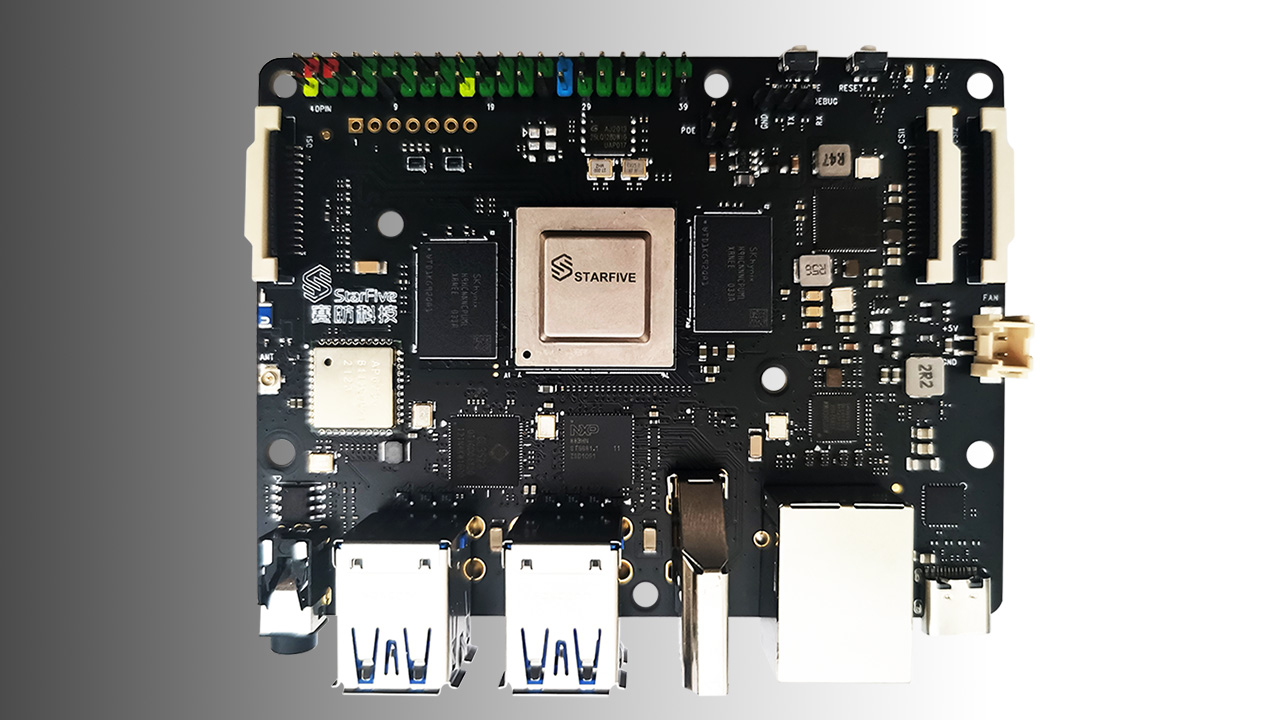China's Ubuntu Kylin Targets Second RISC-V Board
X86 is out, open-source is in
Ubuntu Kylin, China's official fork of Ubuntu, which is named after a mythical part-dragon, part-horse (maybe part-giraffe?) beast, is now targeting a second RISC-V platform following its release for the five-core HiFive Unmatched Mini ITX board earlier this year. According to The Register, the new port for an unnamed StarFive development board will be part of a Summer of Open source in the highly populated country.

China is keen on the open-source RISC-V architecture as it attempts to scrap foreign PCs within two years. We first reported on the team-up between Canonical and the Middle Kingdom back in 2013, when Android was the target that needed to be shut out as phones and tablets became more popular, with its first release being 13.04 in the same year. Now, China’s focus appears to be changing to removing X86 from its computer systems, and Ubuntu Kylin has reached 22.04 LTS, the same version as the mainstream product.
The board being targeted by this new development drive could be the dual-core VisionFive V1 (pictured above). The V1 is modestly powerful — approximately equivalent to Arm's Cortex-A55 designs. While it's not threatening the i7s of this world, it makes a good starting point to build out from — though we don’t expect it to be rivaling Intel and AMD within China’s two-year deadline. The release contains a browser and productivity suite developed in-house to get around the current lack of software support for RISC-V.
Ubuntu Kylin should not be confused with Kylin, a Linux-based OS with a proprietary license developed by China’s National University of Defense Technology since 2001. It began life as a FreeBSD fork, moving to Linux with version 3, and in 2010 spawned an offshoot named NeoKylin which has become the standard operating system for entire cities. In September 2015, Dell reported that 42% of PCs it sold in China ran NeoKylin, and China’s Tianhe supercomputers also run on Kylin.
The push for a locally controlled computing architecture in both hardware and software will be a boon for local manufacturers such as Lenovo, which already offers Linux as an option on many of its PCs. The open source nature of RISC-V also means it wouldn’t be affected by any future sanctions or boycotts in the same way Russia currently is following its invasion of Ukraine.
If you want to try Ubuntu Kylin, you can download both X86 and RISC-V versions of 22.04 here, with installation instructions available as a PDF. Developed in partnership with Chinese authorities, including the military, it remains open-source.
Get Tom's Hardware's best news and in-depth reviews, straight to your inbox.

Ian Evenden is a UK-based news writer for Tom’s Hardware US. He’ll write about anything, but stories about Raspberry Pi and DIY robots seem to find their way to him.
-
artk2219 I guess they're seeing how being tied to a global market for components is working out for Russia and their invasion. I'm sure they're watching very carefully and seeing how they can adjust their plans for Taiwan.Reply -
tomscomments Replyartk2219 said:I guess they're seeing how being tied to a global market for components is working out for Russia and their invasion. I'm sure they're watching very carefully and seeing how they can adjust their plans for Taiwan.
i don't think china waited for russia to see that they should work and invest on semi conductors. It is their main obcession since some years now and us's obcession to block them too. But as the two economies are dependent on each other, thinks are not that simple. That's mainsteam media who have 10 years of lateness or people not specifically knowing this particular industry. China never reacts, they plan -
artk2219 Replytomscomments said:i don't think china waited for russia to see that they should work and invest on semi conductors. It is their main obcession since some years now and us's obcession to block them too. But as the two economies are dependent on each other, thinks are not that simple. That's mainsteam media who have 10 years of lateness or people not specifically knowing this particular industry. China never reacts, they plan
I agree (also nice PLAN pun :LOL:), that being said I'm sure they've had a bit of an extra impetus to keep to their plans or maybe move up some target dates given that they've seen the worlds reaction to overt aggression, and that was for a country with no defensive pacts. If they're patient they could slow roll the entire area over the next 100 years with minimal fall out from everyone else.